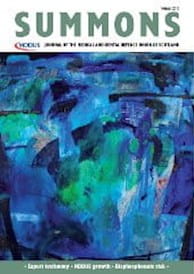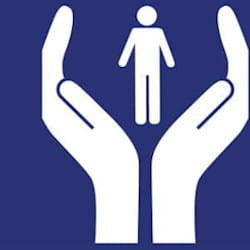Medico-legal cases sometimes rest on complex and conflicting medical evidence. How do judges weigh one expert opinion against another? Barrister Simon Cridland offers some helpful insight
TRADITIONALLY the courts have expressed scepticism of the need for expert evidence. In a court case from 1877 (Thorne v. Worthing Skating Rink), Sir George Jessel opined:
“Now in the present case I have, as usual, the evidence of experts on the one side and on the other, and, as usual, the experts do not agree in their opinion. There is no reason why they should. As I have often explained ... the opinion of an expert may be honestly obtained, and it may be quite different from the opinion of another expert also honestly obtained. But the mode in which evidence is obtained is such as not to give the fair result of scientific opinion to the Court. A man may go, and does sometimes to half a dozen experts ... He takes their honest opinions: he finds three in his favour and three against him; he says to the three in his favour; ‘Will you be kind enough to give evidence?’ And he pays the ones against him their fees and leaves them alone; the other side does the same ... I am sorry to say the result is that the Court does not get the assistance from the experts which, if they were unbiased and fairly chosen, it would have a right to expect.”
Such judicial scepticism notwithstanding, modern litigation has seen a proliferation and significant increase in the calling of, and reliance upon, expert evidence. The courts have become increasingly dependent on expert testimony, and the accelerating process of scientific change enhances that tendency. Indeed, it is arguable that it is only with the readiness of today’s modern courts to receive expert evidence and their ability to grapple with it, that an enormous proliferation of specialised tribunals has been avoided. Today’s judges must be efficient in weighing and evaluating scientific opinion as evidence. But how do they go about that process? Even when there is a fundamental divergence of view between the parties’ experts, the court is still required to reach a decision.
Expert not advocate
Any expert who fails to comply with his primary duty to the court (see box below) will have his evidence rejected. In a 1981 case involving a baby who suffered brain damage during a difficult birth (Whitehouse v. Jordan), Lord Wilberforce stated: “expert evidence presented to the court should be, and should be seen to be, the independent product of the expert, uninfluenced as to the formal content by the exigencies of litigation. To the extent that it is not, the evidence is likely to be not only incorrect but self-defeating”.
It logically follows that the expert should never be one party’s advocate but a person who, having understood the parties’ relevant allegations, can see whether they correctly define the issues to which his expertise is to be directed and – pinpointing any discrepancies – can put that expertise impartially at the disposition of the judge to assist him to perform his task of correctly deciding the issues.(1) Expert testimony which fails to comply with this advice will be rejected by the court or tribunal.
In another case concerning brain damage in infants alleged to be as a result of the administration of pertussis vaccine (Loveday v. Renton), Stuart–Smith LJ set out the principal considerations for the court when determining which expert testimony to prefer: “In reaching my decision a number of processes have to be undertaken. The mere expression of opinion or belief by a witness, however eminent, that the vaccine can or cannot cause brain damage, does not suffice. The court has to evaluate the witness and the soundness of his opinion. Most importantly, this involves an examination of the reasons given for his opinions and the extent to which they are supported by the evidence.”
Stuart–Smith LJ went on to explain that a judge has to decide what weight to attach to opinion expressed by an expert witness by examining:
- the internal consistency and logic of his evidence
- the care with which he has considered the subject and presented his evidence
- his precision and accuracy of thought as demonstrated by his answers
- how he responds to searching and informed cross-examination
- the extent to which a witness faces up to and accepts the logic of a proposition put in crossexamination or is prepared to concede points that are seen to be correct
- the extent to which a witness has conceived an opinion and is reluctant to re-examine it in the light of later evidence, or demonstrates a flexibility of mind which may involve changing or modifying opinions previously held
- whether or not a witness is biased or lacks independence.
Scepticism of the process
Some commentators have expressed scepticism as to how satisfactorily the use of the expert witness works in practice and the long-term social utility of the process. In the text Experts in the Civil Courts (2) Sir Louis Blom-Cooper QC writes:
“In cases where the evidence of expert witnesses is in conflict, a judge (even one who has some, even nodding acquaintance with scientific methods) may not fully comprehend the expert evidence, simply because it is too complex or recondite. The judicial tendency is to decide the case between competing opinions on an artificial basis. Which of the experts was more qualified? Who explained the scientific issues with greater clarity and simplicity? Whose reasoning was more logically appealing? Or is the fact that the expert gives his services free on the grounds that he supports a pressure group for some social reform, less than independent? Or is there sound basis for endorsing the prevalent view among professionals, and querying the radical view? Are judges at fault for using such techniques? It may not be wrong, in terms of judicial decision-making, for a judge to prefer one expert rather than another, because he or she has the more impressive credentials or has a commitment to some social or political cause. But it is highly unsatisfactory, if only because these are factors that do not pronounce on the scientific problems?”
Perhaps the answer to such criticisms lies in the use of court-appointed assessors rather than experts instructed and called by the individual parties to the litigation. Most, however, would agree that it should not in the main be for the courts to seek to determine scientific controversies or somehow pronounce on scientific truths. Rather, judgments should reflect the current accepted mainstream scientific and medical state-of-art.
The power of expert evidence should not be underestimated. It is open to the court to prefer expert testimony over that given by the witnesses of fact where a conflict between the two exists. In such circumstances, the judge must ask himself whether he can reconcile the evidence. If not he must consider whether there may be an explanation for the conflict and make a considered choice which evidence to accept. Equally it is important for the parties to get the expert evidence right first time round, for on an appeal, the appellate court will be notably reluctant to set aside the decision of the judge at first instance on the quality of the expert witnesses he has heard.
Mr Simon Cridland is a barrister in London at 3 Serjeants’ Inn
Sources
- HHJ Adrian Head 146 New Law Journal 1996
- Blom-Cooper L. Experts in civil courts. London: Oxford University Press; 2006
Experts – The Overriding duty to the court
1. It is the duty of an expert to help the court on matters within his expertise.
2. This duty overrides any obligation to the person from whom he has received instructions or by whom he is paid.
This page was correct at the time of publication. Any guidance is intended as general guidance for members only. If you are a member and need specific advice relating to your own circumstances, please contact one of our advisers.
Read more from this issue of Insight

Save this article
Save this article to a list of favourite articles which members can access in their account.
Save to library
